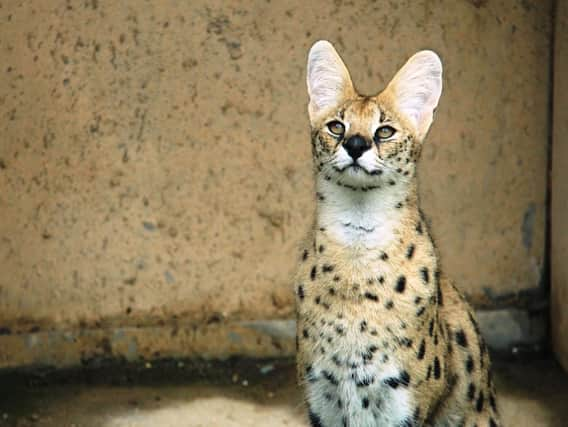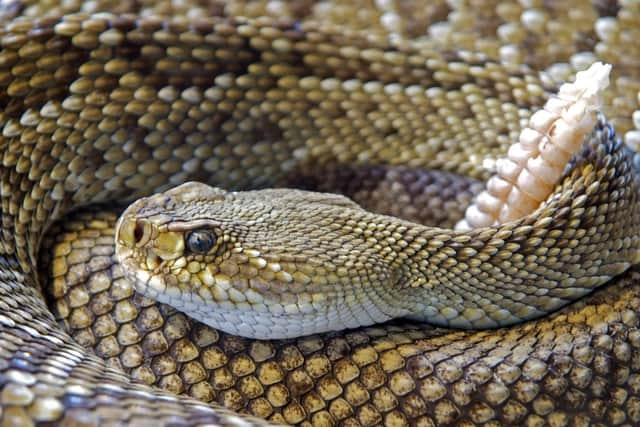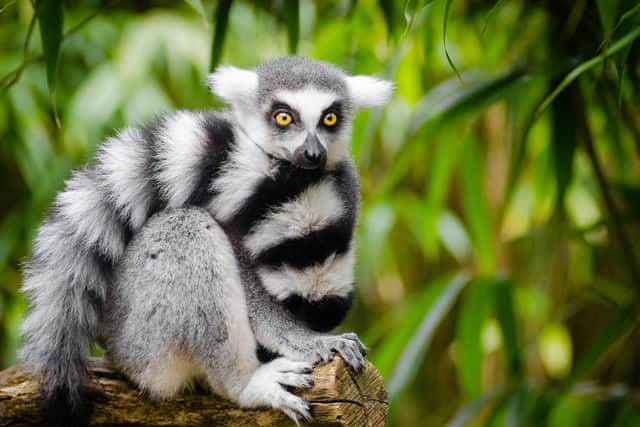Exotic 'pets' on the rise with 124 in Sussex


In total, nearly 4,000 dangerous wild animals are being privately kept in Great Britain – 124 of which are living in Sussex
Licences granted to cover the wild animals residing in Sussex include ones for 90 wild boar, 23 lemurs, one red panda, one Brazilian tapir, one diamondback rattlesnake, seven ostrich and one serval cat.
Advertisement
Hide AdAdvertisement
Hide AdShockingly, the entire combined data across all authorities highlighted a total of 210 DWA licences were granted for the keeping of 3,951 individual wild animals including 320 wild cats (including 61 big cats – 11 lions, eight tigers, 11 leopards, 18 pumas, ten cheetahs, two ligers and one jaguar); 274 primates (including more than 150 lemurs); 158 crocodilians; 508 venomous snakes (including 57 diamondback rattlesnakes); 332 scorpions; 106 venomous lizards; and two elephants.


Other species on the DWA list that are being kept as pets or in private collections in the UK include zebras, camels, fossa (a kind of civet), hyaena, sun bears, wolves, and otters.
The international wildlife charity is calling on the UK Government to immediately review the law and put a stop to some of the world’s most remarkable, but often deadly, creatures being kept as ‘pets’ in unsuitable captive conditions.
Dr Mark Jones, Veterinarian and Born Free’s Head of Policy, said: “Born Free has been collating and analysing DWA data for over 20 years.
Advertisement
Hide AdAdvertisement
Hide Ad"Since the millennium the wild animal welfare and conservation charity has seen a dramatic increase in the number of exotic pets in private ownership, including a 94 per cent increase in the number of venomous snakes, 57 per cent increase in wild cats, 198 per cent increase in crocodilians and over a 2000 per cent increase in scorpions.


"However, these figures are likely to represent only the tip of the iceberg. They only record those animals being kept and registered with a DWA licence. Born Free believes that many additional dangerous wild animals are being kept without a licence.”
Currently, under the Dangerous Wild Animals Act 1976, anyone in Britain can keep a dangerous wild animal as long as they obtain a licence from their Local Authority.
The licencing process requires the applicant to demonstrate their animals are properly contained so as to prevent escape and protect the public, but this does little to ensure the welfare of the animals or the protection of the owner or anyone else visiting the property.
Advertisement
Hide AdAdvertisement
Hide AdWhile changes have been made to the schedule, Born Free is highlighting the fact the Act itself has not been reviewed substantially for more than 40 years.
This means, for example, that species such as Komodo dragons, other large monitors, and large constrictor snakes are not included on the schedule, despite the fact that they could pose a serious risk to their owners, and to members of the public, should they escape.
Furthermore, there is long-standing concern about widespread non-compliance with the Act, especially with respect to venomous reptiles and invertebrates.
Dr Mark Jones said: “It is unbelievable that, in this day and age, so many dangerous animals, including big cats, large primates, crocodiles and venomous snakes, are in private ownership in the UK.
Advertisement
Hide AdAdvertisement
Hide Ad"Increasing demand for all kinds of wild animals as exotic pets puts owners and the wider public at risk of injury or disease. It also results in serious animal suffering, and the demand increases the pressure on many wild populations which are often already under threat.”
A new ITV documentary on dangerous wild animals in the UK is coming soon.